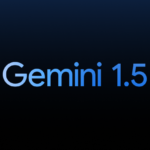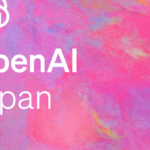
[ad_1]
This week, we welcomed our biggest and most geographically diverse cohort of DeepMind scholars yet. We’re excited to reflect on the journey so far, share more on the next chapter of the DeepMind scholarships – and welcome many more universities from around the world into the programme.
The scholarships journey so far
AI could be one of the most useful and transformative technologies in history – and the mission to build safe and beneficial AI spans a broad community. We established our scholarship programme in 2017 in an effort to help build a stronger and more inclusive AI community, who can bring a wider range of experiences to the fields of AI and computer science. The scholarships provide financial support to students from underrepresented groups seeking to study graduate courses relating to AI and adjacent fields. But of course, financial barriers are not the only obstacles that students can face, so in addition, every scholar is matched with a personal DeepMind mentor, who can support their aspirations and help them to navigate academic life.
We started with eight fantastic scholars who were studying masters courses in the UK and US. The scholarships were awarded to academically excellent students who belong to groups currently underrepresented in AI. This week, we welcomed more than 50 scholars to our 2020 cohort alone.
Expanding the reach of our scholarships
Increasing representation in AI offers a huge opportunity to bring diverse values, hopes and concerns into conversations about the design and deployment of AI – and this is critical if AI is going to be a technology that benefits everyone. Take alumnus scholar Shaquille, who wanted to use machine learning to better understand sickle cell anaemia, a disease which disproportionately affects Black people.
As we celebrated our growing community, we considered the goal of the programme – to contribute to building a stronger and more inclusive AI ecosystem – and we reflected on who was excluded from it.
Our scholarships aim to support underrepresented students – spanning gender, race, ethnicity, and socio-economic background. But imbalances in the field aren’t just social, they’re also geographical. Last year, 70% of all AI-related research was published in Europe, the US, and China, while many other important regions and countries are significantly underrepresented. For instance, only 0.3% of AI journal citations came from sub-Saharan Africa between 2014-2018, and a number of Eastern European countries are entirely absent from publication figures. This imbalance risks creating a technology that only accounts for the values, hopes and concerns of a narrow group, entrenching global inequalities while seeing large parts of the world miss out on the potential of AI to improve people’s lives through innovation in science, healthcare, and education.
That’s why today, we’re delighted to announce that we’re expanding our programme to support scholars in many more countries currently underrepresented in AI, including – Bulgaria, Colombia, Greece, Poland, Romania, South Africa, and Turkey. We are also establishing new scholarships in Canada and France, and continuing our support for scholars in the UK and the US. The full list of universities partnering in our scholarships programme is here.
There are many initiatives actively working to increase regional participation in AI, such as the Deep Learning Indaba, Khipu AI, and the Eastern European Machine Learning summer school. We hope to complement these efforts by enabling students to pursue further education in these regions with fewer financial barriers – contributing to regional hubs of excellence, while benefiting from the guidance of a DeepMind mentor and an international community of scholar peers.
To ensure AI is of global benefit, talent must be nurtured in regions which are currently underrepresented in AI research, and space for geographically and socially diverse, local contributions to the field must be made. We know that increasing access to further education is only one part of addressing the deep-seated structural imbalances in AI, but it is an important one and we are happy to be able to contribute.
So this week, as we reflect on the achievements of scholars past and present, and welcome the new 2020 cohort, we also look to the future, as we hope others will be inspired to take the next step on their AI career journeys too. To quote DeepMind alumna Benedetta, who studied at Oxford University: “Don’t underestimate the value of your unique background.” It’s these unique backgrounds and perspectives that will help make the AI community stronger, more diverse, and more inclusive in years to come.
If you’re interested in becoming a DeepMind scholar, find out more about the programme on our website, discover the universities that participated in the scholarship programme this year, and keep an eye out for upcoming announcements from universities offering DeepMind scholarships starting in 2021.
[ad_2]
Source link








